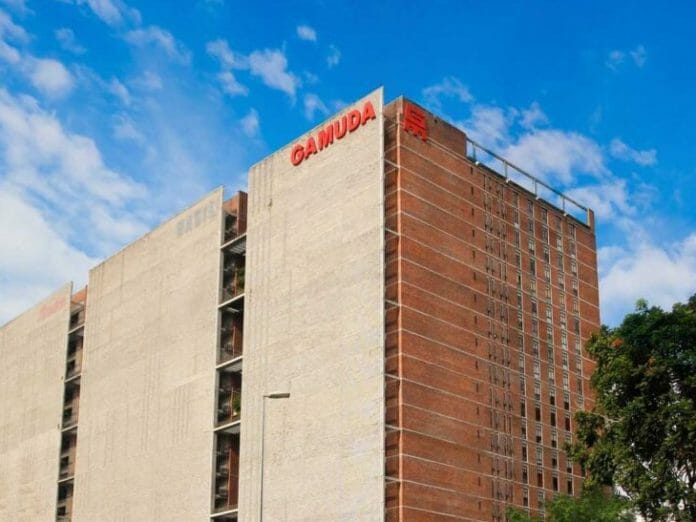Gamuda Berhad’s joint venture agreement (JVA) for a private funding initiative (PFI) to build hydroelectric power plant in Tenom, Sabah will add to its outstanding order book and build longer term recurring income base, says research houses.
In its company flash note today (Oct 31), CGS-CIMB Research said the project also add RM3 billion to order book and strengthen its ESG intiative.
The total project cost is estimated to be about RM4b billion, including interest during construction, it noted.
“We understand from Gamuda that it would undertake the bulk of the construction works of more than RM3 billion. With this, its YTD wins amount to RM6 billion, bringing its outstanding orderbook to RM27.8 billion.
“The company looks well on track to meet its RM25 billion guidance of new orders for the financial year of 2024 to 2025 (FY24-FY25F), in our view,” it said.
Thus, the research house reiterates its ADD rating with an SOP-based TP of RM5.65.
“Its current valuations of 12 times CY24F P/E and 1.0x CY24F P/BV (1 s.d. below 18-year mean) still look extremely compelling, in our view, considering its strong growth trajectory and record orderbook,” it added.
The risks to CGS-CIMB’s call include potential labour issues locally and abroad derailing its construction progress there, and delays in job awards. On the other hand re-rating catalysts are higher-than-expected new order wins, which will translate into better revenue and earnings.
CGS-CIMB also noted that Gamuda a joint venture agreement (JVA) is between itself, Sabah Energy Corporation (SEC) and Kerjaya Kagum Hitech JV Sdn Bhd (KKHJV) to form JV company Upper Padas Power Holdings Sdn Bhd (UPP), with the respective equity interests of 45%, 40% and 15%.
The research house said as this is a PFI project, it will be non-cashflow in nature over the construction period but would provide Gamuda with strong recurring income for more than 40 years post-2029F.
“This will help fill the void left by the sale of its toll road business in 2022. The JV partners plan to fund the project with a minimum debt-to-equity ratio of 80:20.
“There would be no impact on Gamuda’s balance sheet as it only has a 45% stake,” CGS-CIMB added.
The research house noted that upon completion, this project would provide additional generation capacity of 187.5MW for Sabah, delivering up to 1,052GWh of clean energy annually,” it said.
“A power purchase agreement (PPA) would be entered into between UPP and the offtaker, Sabah Electricity Sdn Bhd (SESB). It plans to execute the PPA by 1HCY24F,” the research house said.
The JVA will become effective after approval of the relevant authorities, including Suruhanjaya Tenaga, it added.
Meanwhile, Kenanga Research highlighted that Gamuda has guided for RM25 billion new contracts over FY24 and FY25, including six big-ticket projects by Apr 2025.
“Other than the Taiwanese MRT job (won last week) and this latest hydropower plant, the rest could potentially comprise the Bayan Lepas LRT Line, MRT3, Pan Borneo Sabah highway and one contract from Australia,” it said.
In its Company Update note today, it maintains its OUTPERFORM call with TP of RM5.45, which includes a 5% premium given a 4-star ESG rating.
The research house also expected a significant revitalisation of the construction sector in 2024 backed b the roll-out of the RM45 billion MRT3 project, RM9.5 billion Bayan Lepas LRT Line and six flood mitigation projects reportedly to be worth RM13 billion and the vibrant private sector construction market, underpinned by massive investment in new semiconductor foundries and data centres.
“We like Gamuda for being the front-runner for the tunnelling job for the MRT3, its ability to secure new jobs in overseas markets, its strong war chest after the disposal of its toll highways, its strong earnings visibility underpinned by a record outstanding order book of RM25.6 billion, and its inroads into the renewable energy space,” it said.
Its risks to call include delays in the roll-out of key public infrastructure projects in Malaysia such as the MRT3 and rising input costs and labour shortage.









